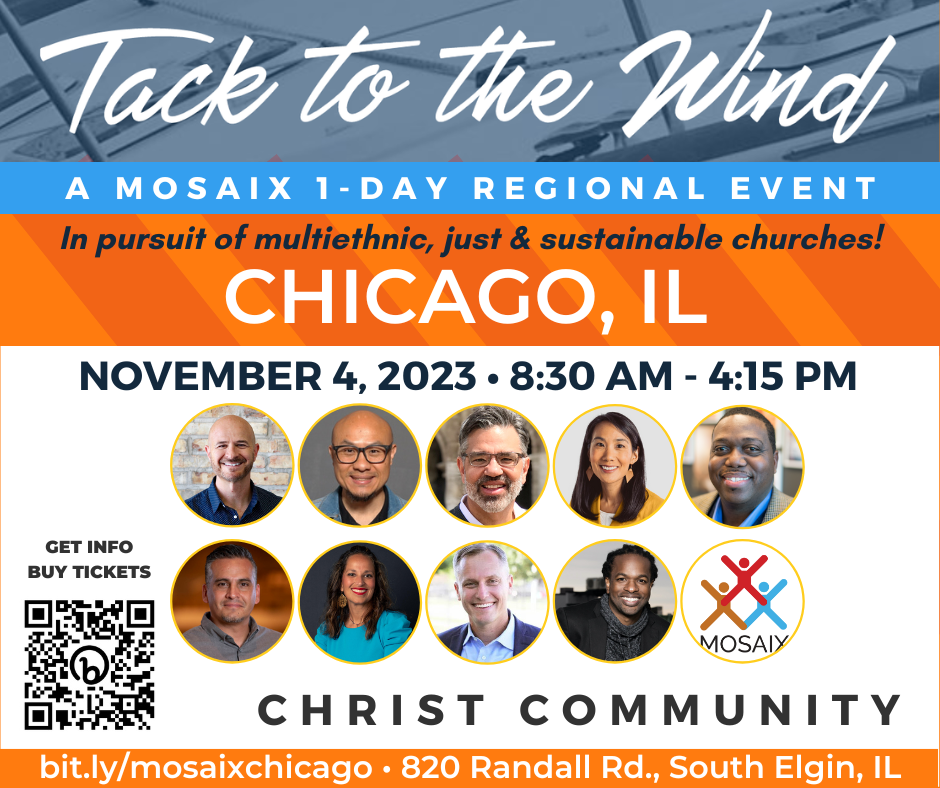But do we love them?
Changing minds is more difficult than signaling self-righteousness.

I recently spent some time with a thoughtful group of people discussing how to get white evangelical Christians to shift their thinking about certain areas of policy and legislation. This group, myself included, believes the political commitments of many white evangelicals related to our specific discussion topic have been more shaped by partisan ideology than by biblical reflection. We hope there might be away to invite this group to consider the impact of their partisanship on the larger Christian community.
During our time together, I began to notice a certain vibe expressed for the group of people whose perspectives we were interested in changing, something between embarrassment and disdain. White evangelicals, for our gathering, were assumed to be categorically distinct, their shallow theologies and predictable voting patterns evidence of a certain backwardness.
(Two caveats: First, I mentioned this observation to the friend who'd organized the gathering and he wondered if our group provided some of the participants with a safe place to vent their frustrations. Some of them, he noted, are surrounded by white evangelical culture and the opportunity to speak frankly was a gift to them. I can appreciate that. Second, by way of confession, I think the reason I noticed this condescending tendency is because I'm exceedingly susceptible to it myself.)
As the day went on, I found myself wondering how the people whose minds we hope to change would feel about how we were talking about them. I don't mean how we were talking about the differences between their theological commitments and ours, I mean how were talking about them. Would they feel respected, even as they heard our disagreement? Would they sense we were motivated by love?
I've mentioned Katherine Hayhoe's important book, Saving Us, in this newsletter before. One of her insights about talking with friends who are skeptical about climate change is the necessity of finding common values. If, for example, your skeptical friend values national security, you can affirm this value and share why climate change makes a country less secure.
Behind Hayoe's suggestion is the assumption that we love our conversation partners enough to understand their values and concerns. This is what sometimes felt lacking during our conversations about changing the minds of our white evangelical neighbors.
I think most of us intuit how important it is to feel loved and accepted when it comes to tender conversations. I'm more likely to consider changing my mind if I feel your admiration and affection for me than if I get the sense you find me icky. So why do some of us struggle to love those we hope to influence?
The list of potential answers is long, but here's one I've noticed in myself. Those who seemed most scornful of white evangelicals at this meeting were themselves, by most any definition, white and evangelical. It seems that we who have shifted in our political perspectives, theological commitments, or ideological assumptions can demean our former peers as a way to signal our own... righteousness? Enlightenment? Respectability? You get the idea.
By rolling my eyes at those white evangelicals, I signal that I'm not one of them. I'm one of the good guys. One of the good white people. I'm not one of those kinds of Christians. And what this means, if we can acknowledge that people change in response to love rather than shame, is that a lot of our justice conversations are more about demonstrating our own virtue than about making a difference.
So, do we love those we hope to change? If not, it's probably not change that we're actually interested in.

Missio Alliance recently published an excerpt from my talk at their conference this past summer.
And to those who’ve endured the worst of the status quo, whose bodies have been reduced to commodities and whose communities know the trauma of societally accepted terror, the priestly vocation makes a way where white supremacy declared there is no way. Priests of creation are positioned between Creation and Creator, a conduit of flourishing and blessing beyond any attempt by this world’s ideologies to diminish. Because, despite its best attempts, white supremacy cannot completely undermine the power of God’s Creation; Creation, no matter how degraded and abused, cannot help by groan for its Creator. And so, the priest stands between Creation and Creator – perhaps groaning herself – and stretches herself tall in an act of generative and creational worship: around her earth-planted feet, creation is lifted to its Creator and the Creator’s blessing is extended to Creation.